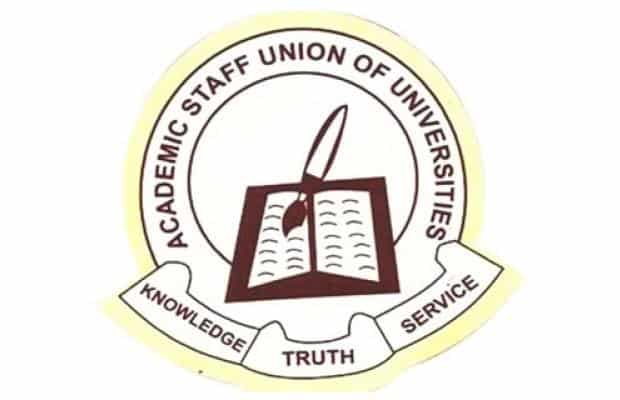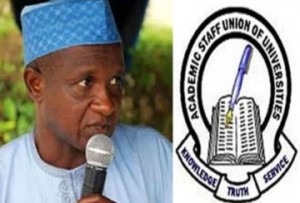
Barely two weeks ago, United Nations Educational Scientific and Cultural Organization, UNESCO, declared that about 10.5m Nigerian children are out of school and are given to street begging, hawking for their parents and serving as house helps at various homes in Nigeria and other parts of Africa.
While stakeholders in the sector were still licking the wound of this awful revelation, Minister of Education, last Thursday, during a ministerial platform in Abuja spoke in defense of the present Federal Government budgetary allocation to education. She noted that education has been well funded but the fund not well utilized.
She said; “Federal Ministry of Education has adequate funding and when adequately utilized, can deliver the sector and reposition it to the pride of the nation.”
Reacting to the above statement, the president of Academic Staff Union of Universities (ASUU), Dr Nasir Isa said; “Judging by the NEEDS assessment reports of the level of decay in the university, I really do not know the basis of the assertion that education is adequately funded.
We have been complaining that the university system is grossly underfunded. We have been talking about the consistency of the underfunding of the university over the years. Nigeria does not compare well with other countries that have been massively injecting funds into education.
“Even in the African frontier, you will see that an African country like Ghana is investing not less than 30 per cent of their annual budget on education. South Africa has been investing over 30 per cent on education. Nevertheless, in the last 10 to 15 years, Nigeria has never invested up to 10 per cent of its annual budget in education. May be the Minister of Education, Professor Ruqayyatu Rufai in her address was referring to the quantum of money invested in education.
“Even if we take that into consideration, looking at the 2013 budget, the N400 billion allocated to education appears to be the highest ever. However, in ASUU, we agreed to factor in the joint venture cash cord. The joint venture cash cord is part of the money the country is spending. If we factor this in, you will discover that the N400 billion that is allocated to education falls into insignificance.
“In reality, when you look at the quantum of money, some can say the amount is really high but when compared to what the money is meant for, it is inadequate. Not more than N80 billion will go into capital development in the system. Bulk of the money goes to offset recurrent grants, payments of salaries and other emoluments of workers in the education sector.
“I wonder how we are going to get out of the road in the system. I think what we need to do is to carry out a comprehensive analysis of the amount of money that is invested in education to know what the money is really meant for. Even on the recurrent grant issue, we know that the NEEDS assessment particularly indicated that the university is grossly understaffed particularly academic staff. Bulk of the money goes into paying supportive staff in the system.
“The money may look huge, but it is inadequate in the true sense. This makes some lecturers to work in about two to three universities because of shortage of staff thus posing undue threat to these academics. ASUU is still convinced that the funding is still inadequate. We are battling with the implementation of 2009 FG/ASUU agreement. There are key areas of that agreement that have not been funded,” he said urging the Minister to look at the factors closely and come up with better assertion.
“However, like any other sector, education might not be free from corruption. What I think we should do is to improve on the checks and balances to see how much money goes into the system and how many percentage of it is being judiciously utilised. The council is the highest policy-making body in the university system.
“It is the council that approves expenditure in the system. So if people who are not conversant with the university system are heading council, it becomes difficult for you to get maximum premium to investment in the system. If you look at the calibre of people that were appointed by government councils, majority of them find it difficult to contribute to the development of the system. We discovered many of them are coming from a political background and we are of the opinion that the governance of the university should not be politicized. Once we have such in the university system, then investments will not yield the desired fruits.
On his part, former Executive Secretary, National Universities Commission, Professor Peter Okebukola who seems to agree with Professor Ruqayyatu’s statement said; “I agree with the Honourable Minister of Education that the funds available to the Federal Ministry of Education and its agencies are not adequately utilised. Three examples are worth citing.
The UBE is literally awash with unaccessed funds by state governments ostensibly on account of inability of many states to retire funds earlier accessed. Such states fail to retire having not met the conditions for spending even when such conditions were relaxed in recent times.
The second example is TETFund. Here, many beneficiary institutions notably universities, polytechnics and colleges of education, fail to meet the spending criteria on earlier grants, a situation which has resulted in billions of Naira still resident in TETFund crying to be spent.
If the unspent UBE and TETFund monies are released into the educational system and well spent, the system will be jolted to attain higher levels of quality. The third example is the inadequate utilisation of even the funds that manage to get to the institutions.
There are a lot of leakages which inhibit efficient use of such funds. It needs to be stressed that even if all the UBE and TETFund monies were aggregated, they do not translate to adequate funding for education. To adequately fund education in Nigeria, we will require about double the quantum of funds now deployed to the sector at the federal, state and local government levels.



